When it comes to link building using digital PR, it’s important that you start with the story.
A great story can be told in many different ways. However, you’ll struggle to gain traction when there’s either a lack of it or a poor story regardless of what format you choose.
That means, almost ignoring the end format of your asset (infographic, interactive, and the others) until you’ve got a solid concept with strong headlines.
That said, there’s a lot to be said for spending the time to let yourself be inspired and to understand which formats are working for other brands.
Here, I’ll showcase five proven formats which help maximize link acquisition in a digital PR campaign, placing a focus upon specific campaign types as opposed to simply the visual delivery.
I’ll look at why each format is often successful at earning links and share campaign examples (to note; these aren’t all campaigns which I’ve been involved in, but ones which I love and have been inspired myself by).
(To note: All linking root domain statistics have been taken from ahrefs using the “Historical” figure. Correct as of 13th February 2019.)
1. Maps
Maps are a great format to use when running a digital PR campaign for two main reasons:
- Due to the nature of the format, they make it possible to take campaigns out to multiple regions; thus hooking in angles to journalists at publications who focus on a specific geographical region as well as either national or international ones.
- They’re a simple but effective way to display data or simple stats and are generally easy to embed by publishers.
When choosing a map as the most suitable format for your campaign, you need to be thinking of simplicity to avoid a design which looks too busy and need to have a comparable thing to compare either across regions or countries.
Whether you opt for a map which showcases regional differences across a country (think city vs city or state vs state), within a continent (think European countries or cities compared) or global; you need to ensure that the data is available as the format can fall down with too many gaps.
Ready to be inspired? Here’s three totally different, but equally great, map-based campaigns:
Veygo – The world’s most desired motors

Linking Root Domains: 114
Credit Card Compare – The literal translation of country names
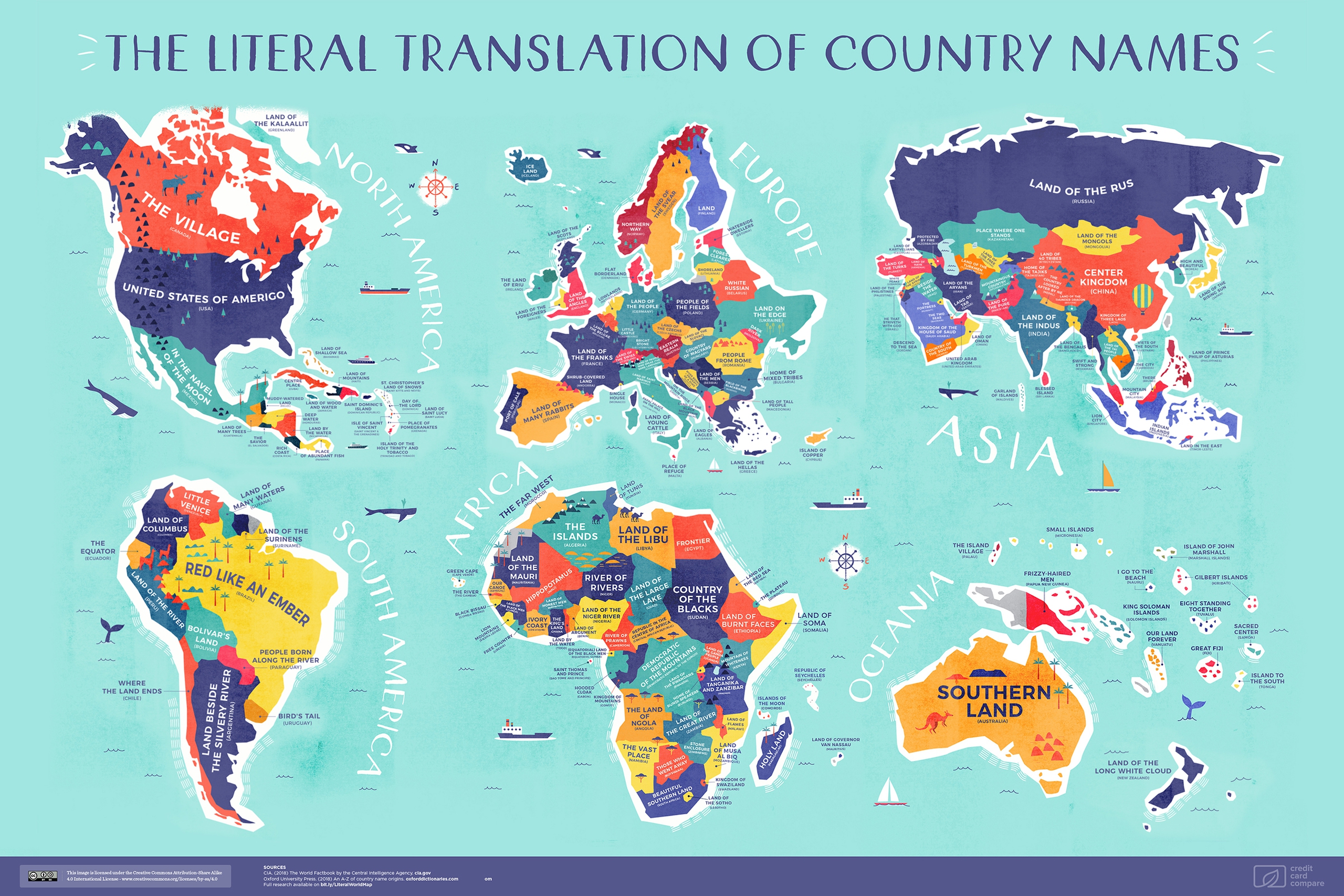
Linking Root Domains: 277
Expedia – Mythical creatures and where to find them
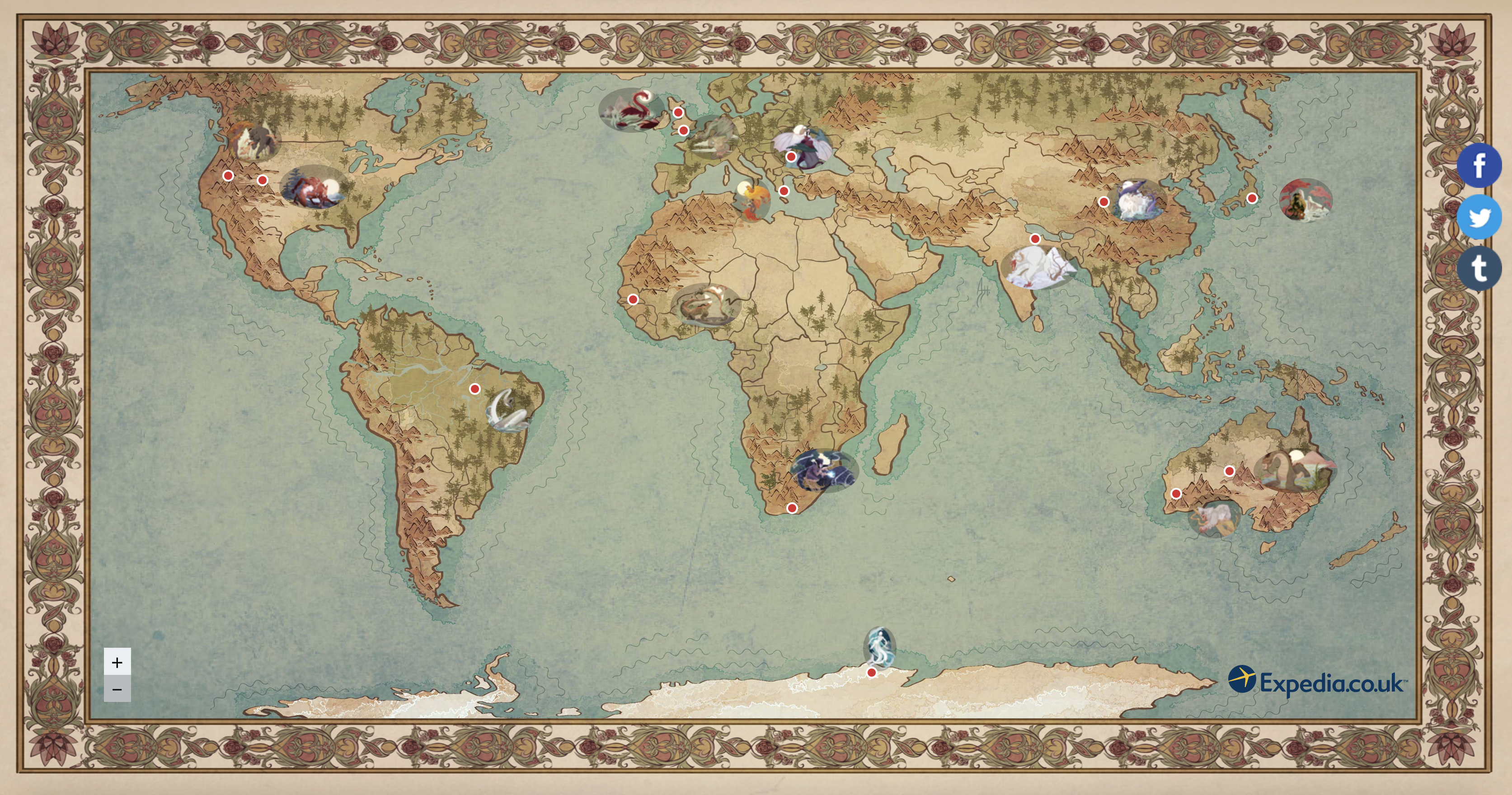
Linking Root Domains: 90
2. Calculators & tools
Calculators and tools are a fantastic way to earn links. Why? For the simple reason that a link becomes a vital part of a journalist’s story. It’d make no sense for them to mention a new tool or calculator (which users can interact with) without linking out to it. It’s common user experience but the main consideration here is that the link adds value to the article. It helps the user to navigate to an asset which they’re being told to try out.
It’s only human nature that we want to find things out and working an element of personalization into a campaign is a great way to drive engagement and help to create a connection with a campaign.
Think about it this way, if you saw an article which mentioned a calculator which could showcase how quickly Kim Kardashian would earn your annual salary (hint: She earns the average annual UK Salary in 6 and a half hours), you’d want to try it out? Wouldn’t you?
Similarly, what if you heard about a tool which allowed you to enter your Instagram handle and be told how much you could be earning from brand collaborations?
Take a look at three very different examples of calculator-led campaigns to feel inspired and start to think of what you could create:
Missy Empire – You vs The Kardashians
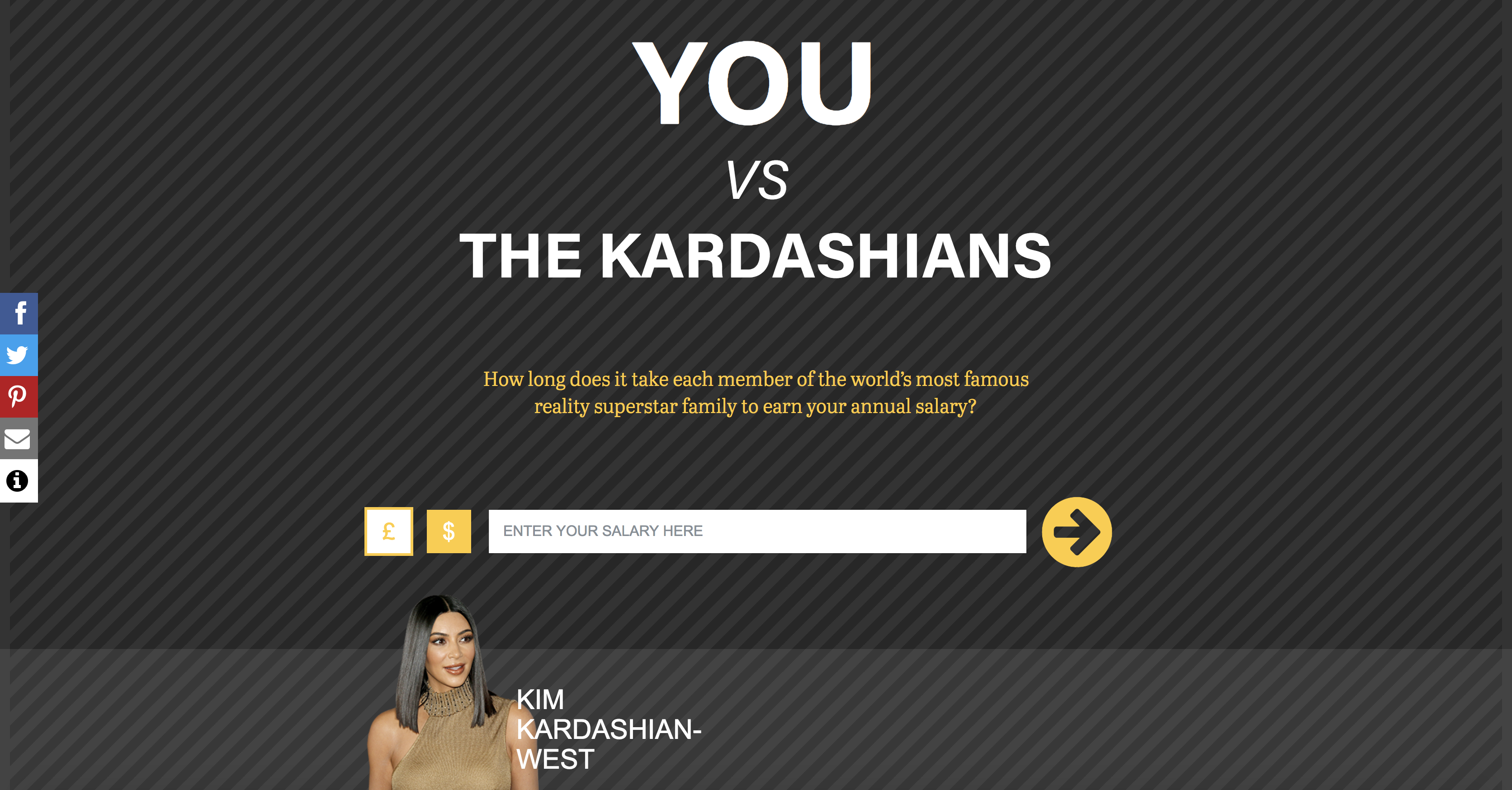
Linking Root Domains: 219
Inkifi – How much are your Instagram posts worth?

Linking Root Domains: 347
Totally Money – How much is your unpaid overtime worth?
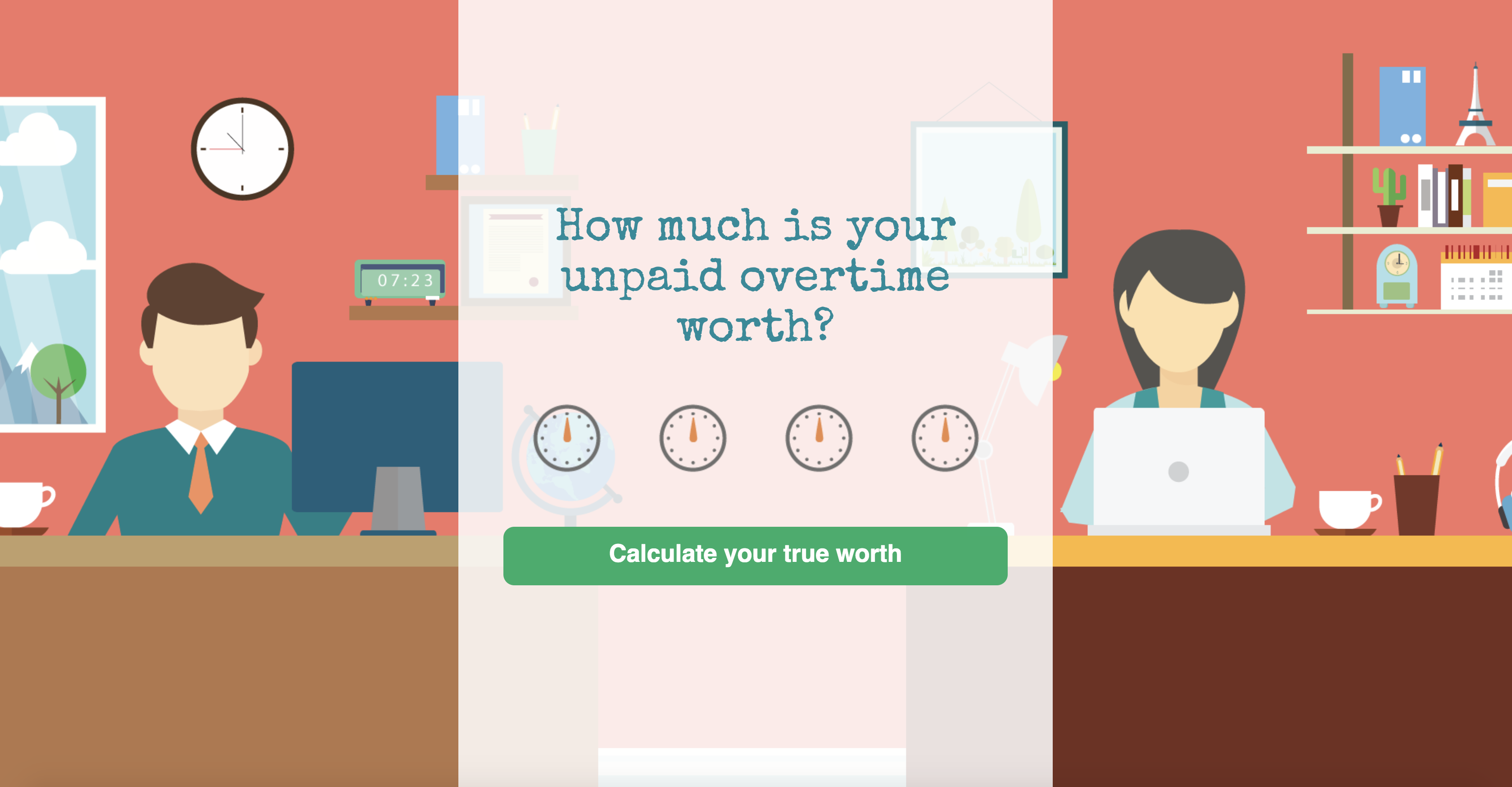
Linking Root Domains: 41
3. Indexes
We love to compare both ourselves and our lifestyles to others and that’s why an index format works so well for content campaigns.
Often used to compare cities or countries, but also seen comparing the popularity of brands, products or similar, indexes are a format which rarely struggles to earn links when backed by strong data.
Think about it this way; if you’re looking at running a campaign which looks at revealing “the best cities in the world for foodie tourists” you’ve got the opportunity to pitch this out to niche food and travel publications and blogs, regional publications (how the local city ranks on the list), national publications (where cities from the country rank), and global publications (to showcase the overall findings).
There are literally so many ways to hook into different sectors of the press with an index-led format and the data behind often reveals some interesting stories. Just be sure your sources are credible.
The challenge with this format is typically what to rank but the beauty is that they can be presented in so many different ways depending on the budget and resources.
Working to a low budget? Show the data and ranking as a table on a blog post. Have a little more resources? Why not design as an infographic? Looking for something even more stunning? Develop an interactive asset where data columns of the index are sortable.
Here are three great examples of campaigns which use this format.
Movehub – The hipster index
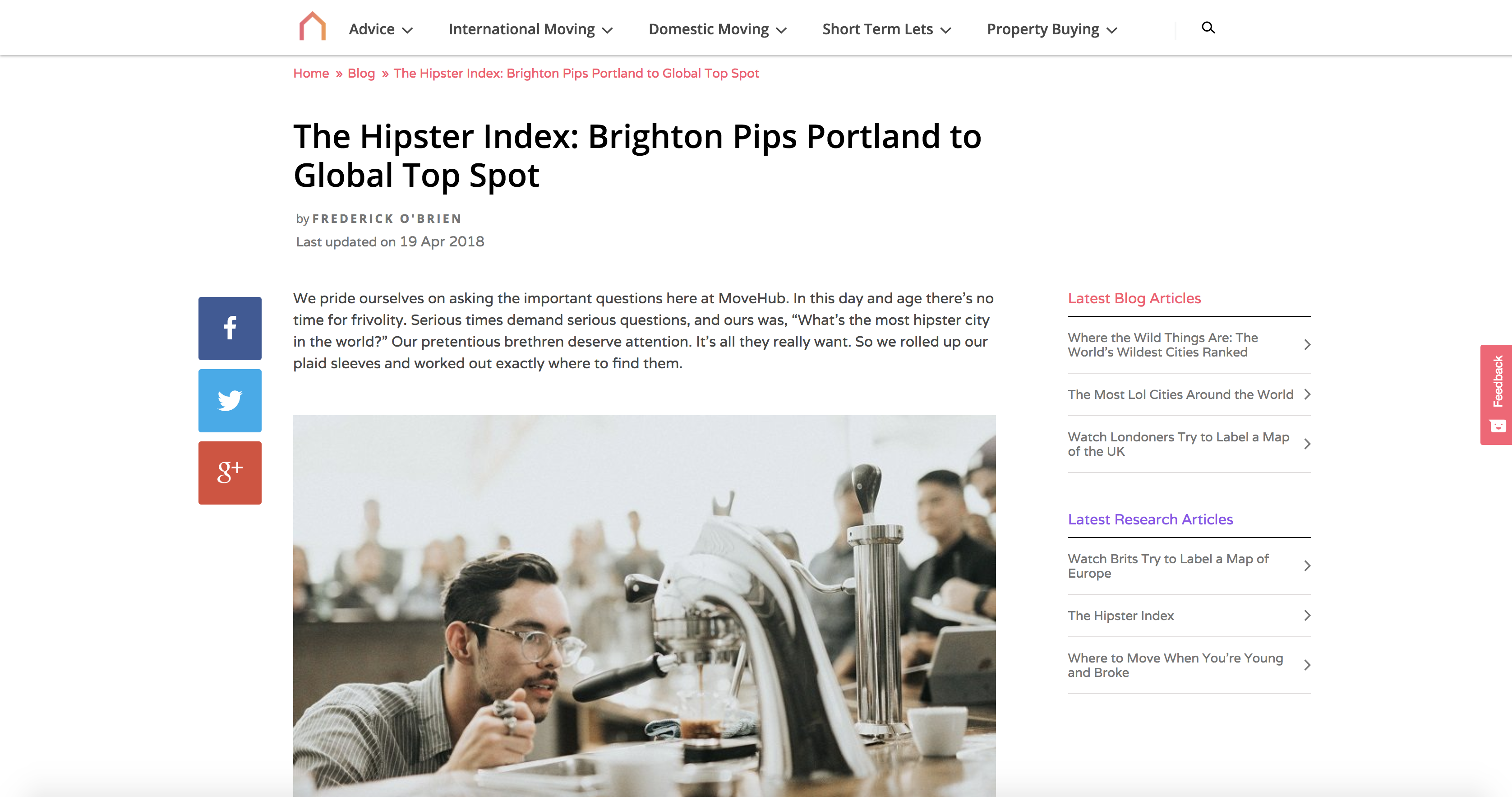
Linking Root Domains: 271
Nestpick – The 2018 millennial cities index
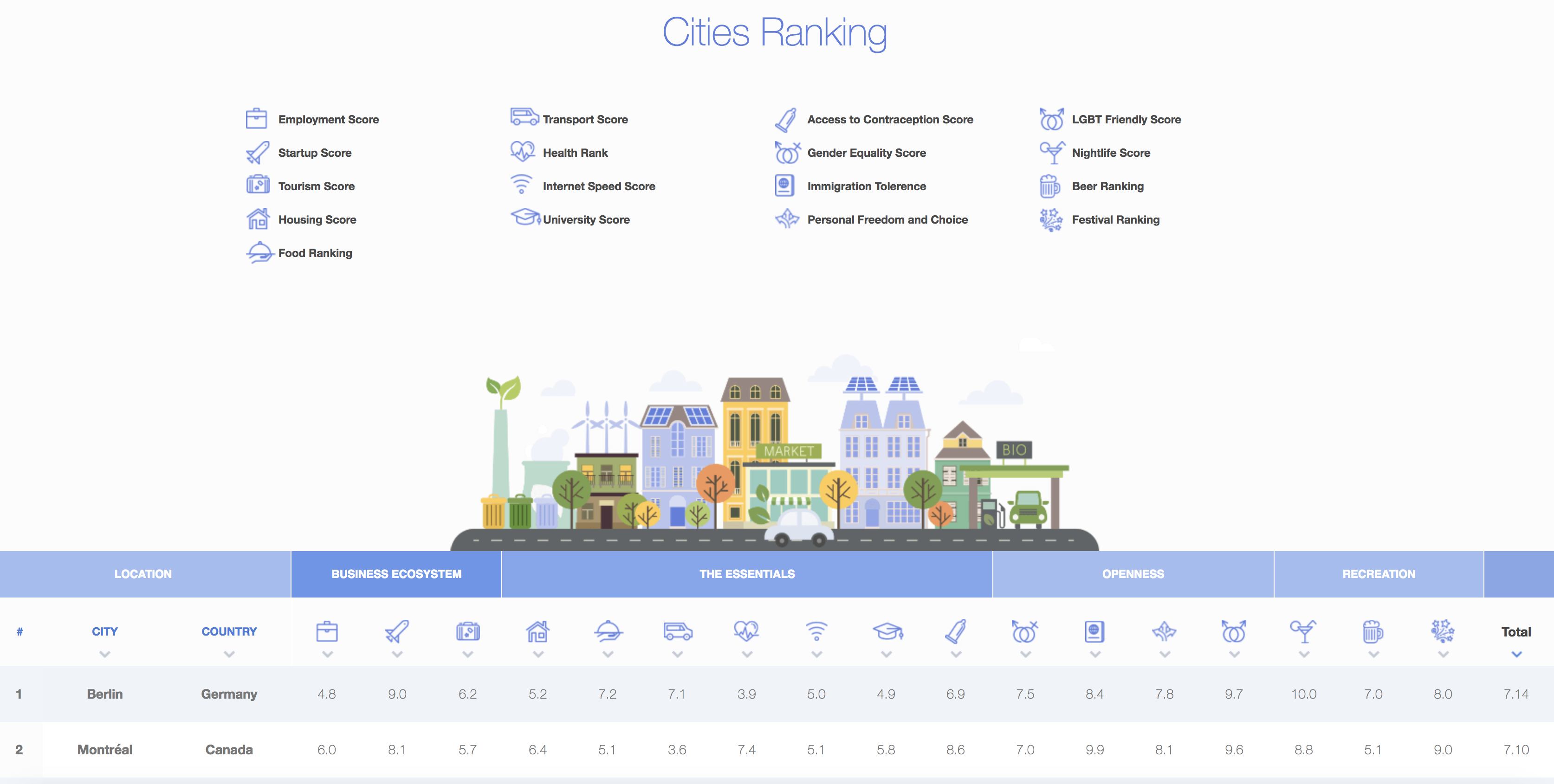
Linking Root Domains: 330
Zalando – The world’s most elegant cities
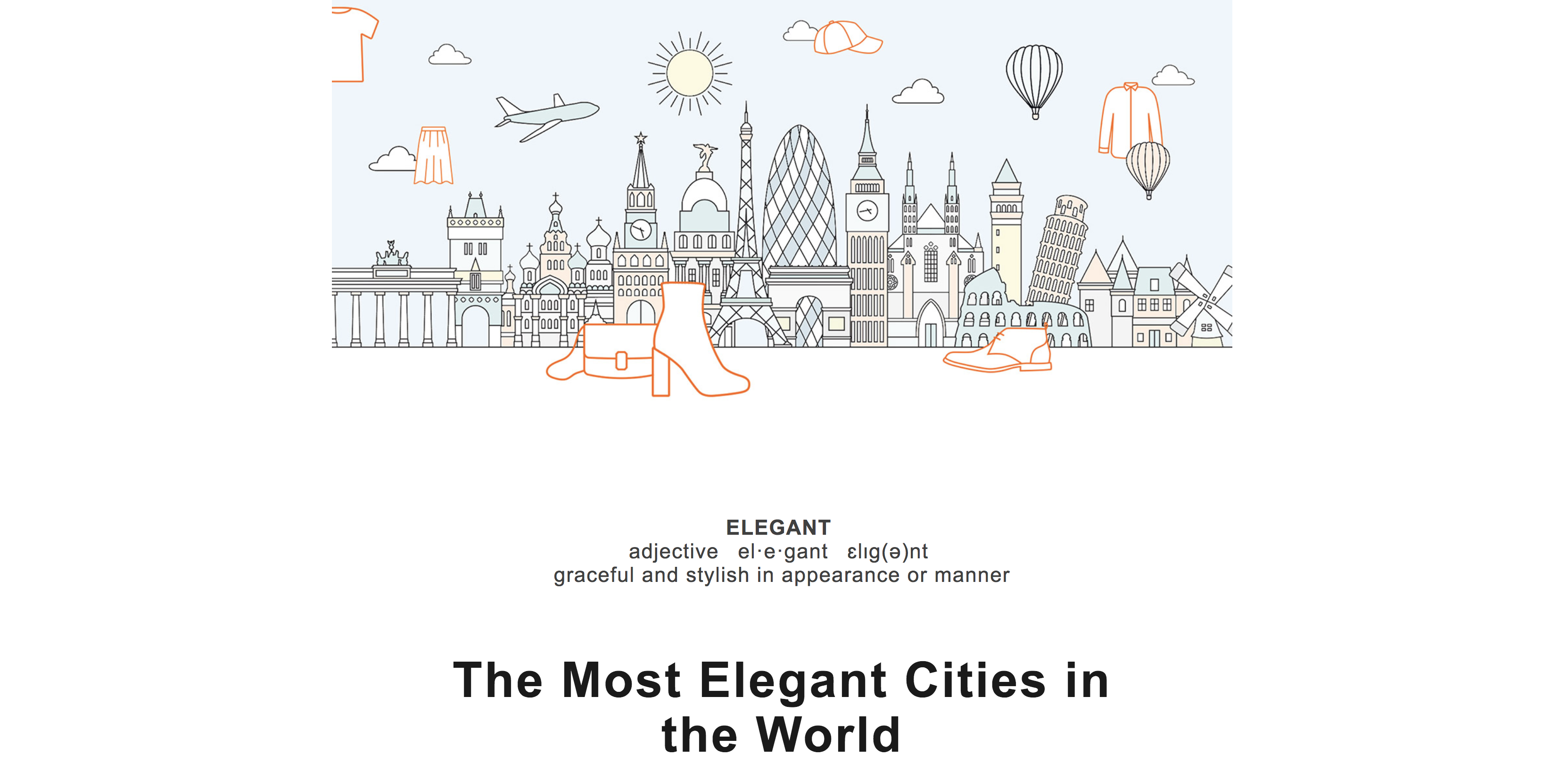
Linking Root Domains: 162
4. Social stat rankings
If you’re looking for a simple but effective campaign format; have you considered conducting a study into the social stats behind a concept?
From the most hashtagged sneakers to the most Instagrammed beaches, there’s plenty of fantastic examples of campaigns of this nature which have earned significant volumes of links yet have been able to be executed in a resource-friendly way.
At the most basic level, to launch a campaign utilizing social statistics, you simply need to find something comparable and collect the hashtag data. There’s also the potential to replicate a similar format utilizing follower-counts of celebrities in a sector or the like.
Are you ready to feel inspired? Here are a few of my favorite social stat campaigns from the past 12 months.
Forward2me – The world’s most Instagrammed sneakers

Linking Root Domains: 120
MyVoucherCodes – Dogs of Instagram
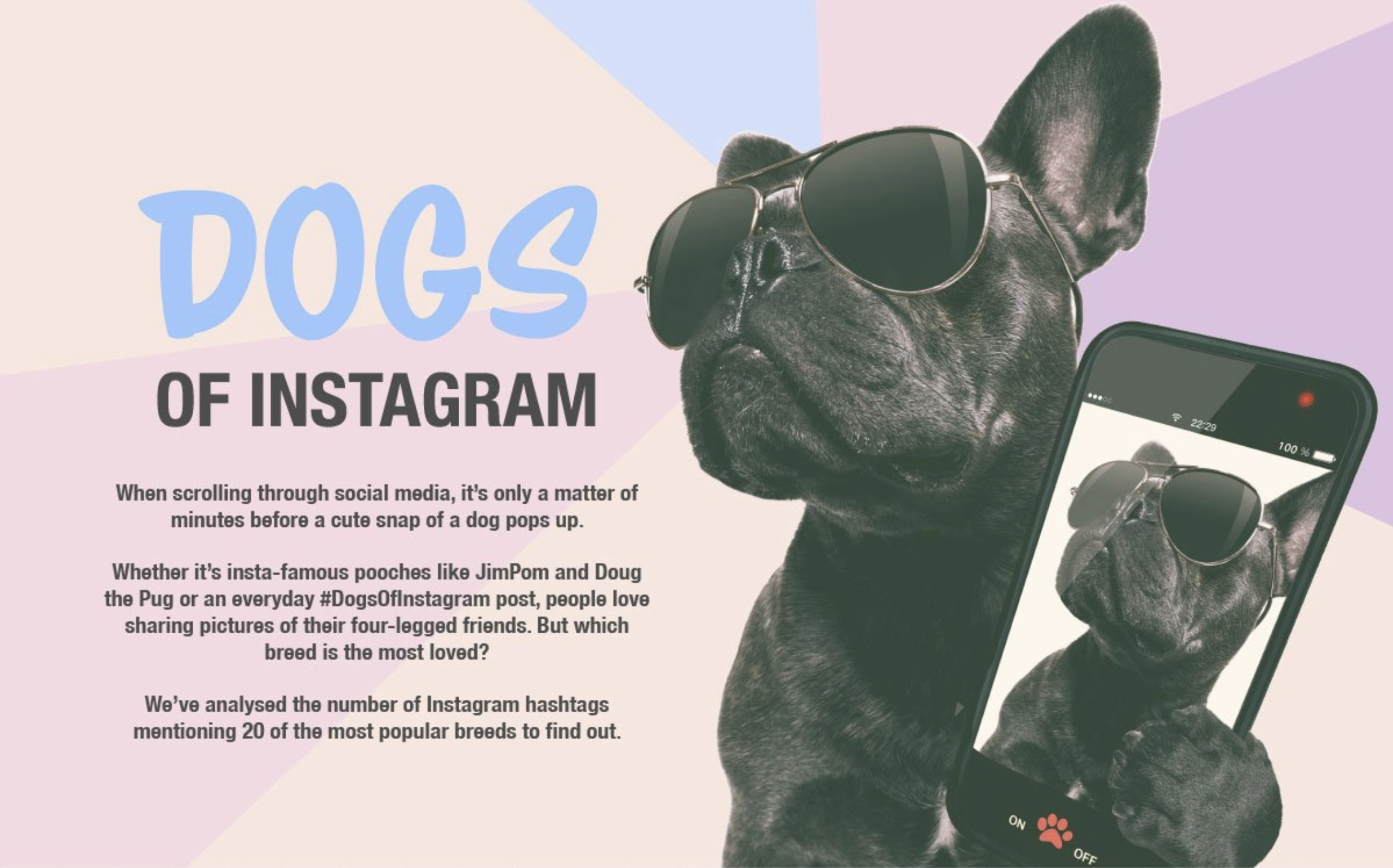
Linking Root Domains: 42
TravelSupermarket – The best beaches in the world according to Instagram

Linking Root Domains: 41
5. Brainteasers
Have you started to notice a trend here?
The campaign examples which I’ve shared aren’t all highly complex data studies or interactive assets and this may come as a surprise.
It’s important to understand when launching a content marketing campaign that simplicity is often the key to success and this last format certainly falls into that category.
Brainteasers have been used by marketers over the past couple of years, often to great success due to their shareable nature and the challenge which they present to users.
So long as you’ve got a great design resource and an imagination, the opportunities are endless with this format and are always fun to work on as well.
Here are a few examples to get your creativity flowing.
Lenstore – Can you spot it?

Linking Root Domains: 126
Bloom & Wild – Can you spot the Christmas robin?

Linking Root Domains: 26
Takeaway
When it comes to launching a digital PR campaign where the focus is on earning links, the story always needs to be the priority. However, by taking the time to understand what formats are working for others, you can start to think about ideas in a different way.
If a format is working, it makes sense to learn from this and understand why the stories which go alongside such campaigns resonate so well with publishers.
It’s all about understanding why some formats perform better than others when it comes to earning links and what it is that makes them attractive to publishers. Hopefully the above has given some inspiration for your own campaigns and left you thinking up ideas for what you could launch yourself.
James Brockbank is the Managing Director of Digitaloft, a multi-award winning SEO, PPC & Content Marketing agency. He can be found on Twitter @BrockbankJames.
The post Five proven content formats to maximize link acquisition with digital PR appeared first on Search Engine Watch.